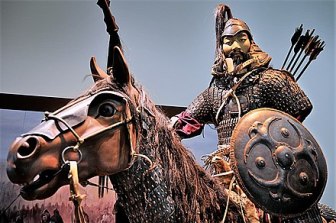The author is often amusing as well as illuminating. Genghis Khan was a vicious warlord, but his domestic policies “would today open him up to accusations of being a politically correct, latte-drinking virtue signaller”. The Mongols practised ethnic and religious tolerance, which is one reason why they were so effective. They promoted skilled fighters, engineers and administrators of all backgrounds. Of the 150,000-strong horde that invaded Europe in 1241, only around a third were ethnic Mongols.

Habsburg soldiers were surprised to find that one captured officer was a middle-aged literate Englishman, who had fled persecution for heresy at home and sought refuge among the more openminded Mongols. All regions have had rulers who tried to preserve stability by shutting out foreign influence. The key to thwarting them has often been for the ruled to vote with their feet. Early modern Europe was no more advanced than China, but power was more dispersed, so thinkers who offended one prince could simply move. Hobbes wrote “Leviathan” while in exile in Paris; Locke and Descartes went to Amsterdam. Their books could always be printed somewhere, and so were impossible to suppress.
译文由可可原创,仅供学习交流使用,未经许可请勿转载。












